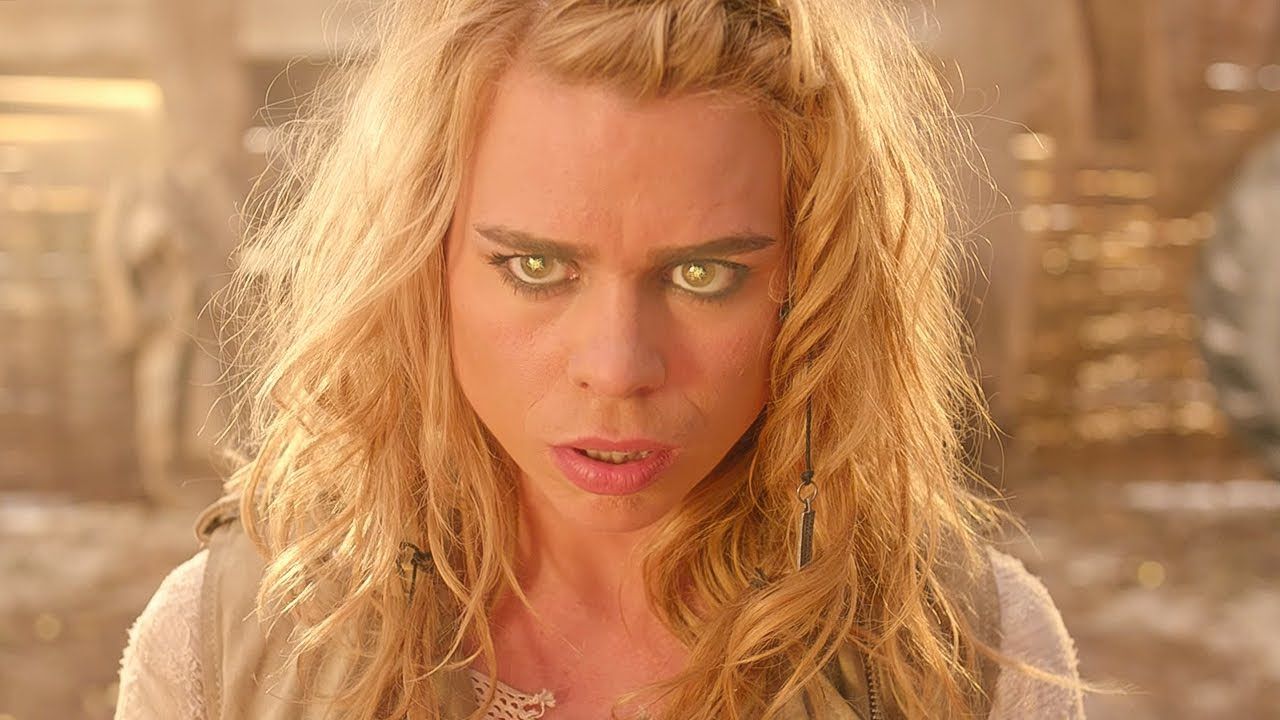This year, Doctor Who is celebrating the 15-year anniversary of its modern relaunch. In its classic era, the series last aired in 1989, before Paul McGann would suit up as the Eighth Doctor in a single 1996 TV movie, a failed attempt at rebooting the BBC series. After nine years of silence, however, Doctor Who returned with a veritable fire thanks to showrunner Russell T. Davies and stars Christopher Eccleston and Billie Piper. Starting once again with a new Season 1, this new era of Doctor Who introduced the immortal Time Lord to a new generation of fans.
Throughout the years, the Doctor has had many companions aboard the TARDIS, ranging from the very first, Susan, Barbara and Ian to the latest, Graham, Ryan and Yaz. And yet, despite the massive history of Doctor Who companions, there are none that even come close to Rose Tyler -- in any era.
Viewers were first introduced to Rose Tyler in the appropriately titled Season 1 premiere, "Rose." She was the first character fans ever met in the Doctor Who relaunch, even before the title character himself. In fact, in the premiere, Rose was the window character into this new world. Through her, fans saw the very real and frightening threat that aliens could pose and, through her, they were introduced to the Doctor, a tall, alien man who travels across time and space in a big blue box. Rose was the everyday person -- she worked at a shop, she had a boyfriend and she lived with her mother.
Like all other companions, as she began to travel with the Doctor, Rose found herself as a person. She discovered that she was brave, passionate, strong and heroic. She saw what the meaning of life could be throughout the universe, and she felt what love truly was. Yes, love: one of the more controversial aspects of Rose Tyler is part of what makes her so important to the series' mythology. In the first season, Rose grew increasingly close to the Ninth Doctor, to the point that there was a tangible attraction between the two. Then, in the Season 1 finale, "The Parting of the Ways," they even shared a kiss, before the Time Lord would regenerate into the Tenth Doctor.
And yet, it's through her time with David Tennant's Tenth Doctor that Rose became even more important. The relationship between the two grew exponentially in Season 2, to the point that the series, eventually, featured a love story between Doctor and companion for the first time. The Tenth Doctor truly loved Rose with all his hearts (he has two, remember), and she loved him in return. Unfortunately, Rose left at the end of Season 2, leaving a big hole in the Doctor's life. But even though she was no longer physically there in the TARDIS, she continued to have an important presence in the Doctor's life.
Throughout most of Season 3, the Doctor mourned the loss of Rose, as he went through what could be described as an extensive break-up period. Then, despite being locked in another universe, Rose would return in a big way in Season 4, as she put in sporadic appearances that would tie into the overarching storyline. The character would even return again in David Tennant's farewell episode, as the Doctor visited her in the past one last time before regenerating into Matt Smith's Eleventh Doctor.
Once Smith took on the role, the specter of Rose was, effectively, put to rest. After all, she was an important fixture in Russell T. Davies' time on the show, and now that Steven Moffat had taken the helm of Doctor Who, the writer took things in a new direction. And yet, even Moffat recognized the importance of Rose Tyler. In fact, the showrunner brought Billie Piper back for the 50th anniversary special "The Day of the Doctor," an episode that brought Matt Smith and David Tennant together onscreen for the first time. Rose Tyler was the form the sentient weapon known as The Moment took to interact with the War Doctor, to help convince him not to destroy Gallifrey.
And this is all without even mentioning Rose's other, cosmic identity: Bad Wolf. In Season 1, nearly every episode featured the words "bad wolf" in one form or another, and it was in the Season 1 finale that fans learned why that was. In order to save the Doctor from the Daleks, Rose looked into the heart of the TARDIS -- into the Time Vortex itself -- and absorbed its power. Because of it, she was able to scatter the words "Bad Wolf" across space and time to leave herself a message.
This allowed her to save the Doctor's life. What's more, her power was also used to give Captain Jack Harkness immortality, something that would have long-lasting effects for the character, who appeared as recently on the series as in this year's Season 12 episode, "Fugitive of the Judoon." Rose's Bad Wolf persona would also be brought into the 50th anniversary special, once again recognizing the character's overall importance to Doctor Who mythos.
Since Rose's departure, there have been other important companions such as Donna Noble, Amy Pond, Bill Potts and Clara Oswald. Each, in their own way, was affected by their travels and became bigger than themselves. They all helped the Doctor survive, across space and time. But Rose Tyler did it first. She fell in love with the Doctor, and he loved her. She continued to affect him even after she was gone, and she returned to help whenever she could. When it comes down to it, there is simply no other companion like Rose Tyler -- no matter the era.
Doctor Who stars Jodie Whittaker as the 13th iteration of the titular Time Lord. Whittaker is joined by co-stars Bradley Walsh, Tosin Cole and Mandip Gill in a series spearheaded by showrunner Chris Chibnall. The next episode, "Revolution of the Daleks," will air this holiday season. The new season and all previous 11 seasons will stream on HBO Max later this year.



